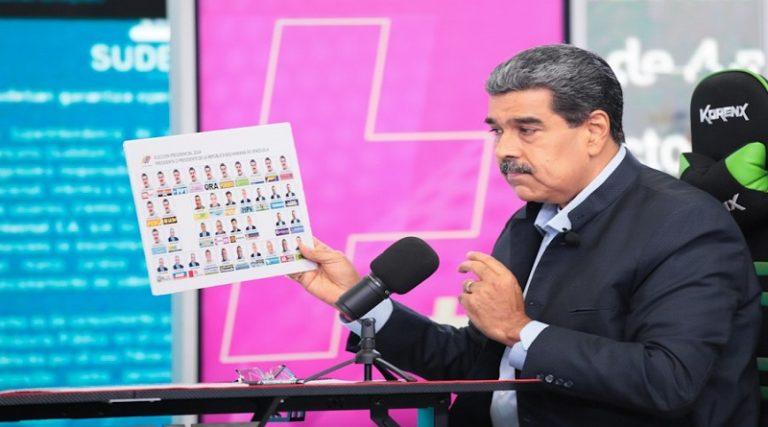A few months before the presidential elections of July 28, the Venezuelan political panorama is becoming increasingly defined, according to a recent survey presented by the renowned journalist, Ignacio Ramonet, which shows that the President of the Republic, Nicolás Maduro, leads preferences with a 55% voting intention, which suggests a large advantage over his contenders.
In this sense, the head of state interpreted these numbers as a clear sign of the strength and unity of Chavismo, which he described as “a powerful and resistant force in the face of adversity.” With his sights set on July 28, he affirmed that “the Bolivarian Revolution is standing and resisting”, ready to face any challenge that may arise:
“Chavismo is a living, active force that is unified, that is diverse, that has diverse ways of expressing itself from the powerful United Socialist Party of Venezuela (PSUV), from the powerful alliance of the Great Patriotic Pole (GPP), from the new and powerful sociopolitical Futuro movement, that we have men and women who are Bolivarian and Chavistas in every community, on every street,” he stated.
O Globo Lies:
In another vein, the national president maintained that “the surveys and analysis of the facts categorically refute the assertions of the (Brazilian) O Globo news agency,” which has been complicit in disseminating misleading information regarding the electoral situation in Venezuela.
He asserted that, behind the idea that O Globo tries to impose by stating that there is no electoral plurality in Venezuela, it lies within a malicious political agenda that falls apart when the multiplicity of competing candidates and parties is observed: “Chavismo, with its solid support base, faces a fragmented but active opposition. The true story is not the one that this medium wants to tell, but the one that is written in the streets, in rallies and in daily conversations.
In a broader context, the president highlighted the political diversity of the country and mentioned that “13 left-wing parties have supported his candidacy.” On the other hand, he pointed out that the opposition, made up of 24 factions, has fragmented into 12 different candidates, which contrasts with the unity shown by the socialist left wing that supports the Bolivarian Revolution.
When referring to past events, he also included the episode in which Juan Guaidó proclaimed himself as president, which resulted in an initially unified opposition. However, after the events that followed, the opposition was “shattered into four pieces,” in the words of the national leader.
Finally, journalist Ignacio Ramonet emphasized that, according to the most recent and serious surveys, “external claims about the lack of electoral plurality in Venezuela are totally false and unfounded.” With these data, the president expressed confidence that the path to the July 28 elections is paved with popular support and predicted a “democratic victory in 2024.”
